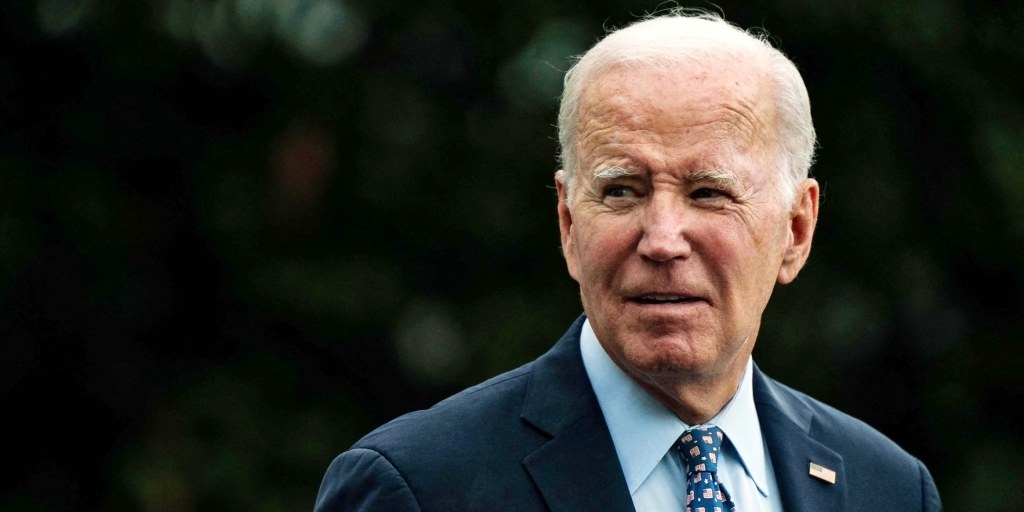There is a significant chance of a government shutdown as lawmakers on Capitol Hill are divided on reaching a resolution, with Senator Ted Cruz suggesting that President Biden and Senator Schumer may want a shutdown for political gain.
Former House Majority Leader Eric Cantor advises Republican colleagues not to pursue a government shutdown unless they have a clear plan to come out as winners, citing the failed attempt to block Obamacare in 2013 as a major political headache that did little to hinder its rollout.
The disconnect between Washington's political showdowns and overwhelming economic anxiety across the country, as revealed in a recent poll, is increasing the likelihood of a government shutdown and eroding confidence in the nation's leaders.
The potential government shutdown threatens to deprive the Federal Reserve of crucial data on the labor market and inflation, which could hinder its ability to make informed decisions about the economy and interest rates.
President Joe Biden's administration is taking a wait-and-see approach to the potential government shutdown, confident that they can pressure House Speaker Kevin McCarthy to stick to the spending deal they struck in May rather than trying to create a new bipartisan bill.
The White House warns that a government shutdown at the end of the month could have damaging consequences for the economy, national security, and the American public.
The White House is preparing for a government shutdown that they believe the public will blame the GOP for, as Speaker Kevin McCarthy struggles to unify his party behind a spending bill, and economists suggest that a shutdown would benefit the Biden administration heading into the 2024 presidential election.
Conservative GOP Representatives Matt Gaetz and Marjorie Taylor Greene may face detrimental political consequences if their push for a government shutdown is successful, according to Rep. Jamie Raskin. Raskin believes that the shutdown plan is orchestrated by former President Trump and warns that participating in it could end their political careers.
A potential government shutdown in Washington could have far-reaching consequences, causing financial losses for millions of people, disrupting medical research and food access, delaying regulatory efforts, and hampering the Biden administration's agenda on energy, climate, and infrastructure.
Lawmakers are preparing for a possible government shutdown as President Joe Biden's administration advises agencies to update their shutdown plans, while congressional Republicans debate on how to proceed before the current spending plan expires.
President Biden warns of the potential consequences of a government shutdown, urging Republicans in Congress to take action to prevent it.
Rep. Tony Gonzales (R-Texas) predicts that the country is headed for a government shutdown and believes that a continuing resolution would only delay the problem rather than solving it.
Former President Trump urges Republicans to stand firm in the face of a potential government shutdown, asserting that President Biden will be blamed if it happens.
Speaker Kevin McCarthy believes it is crucial to have a meeting with President Joe Biden to address the government shutdown and emphasize the importance of passing the GOP's border security package.
The White House is preparing for a possible government shutdown on October 1, with senior officials drawing up plans for essential personnel, as lawmakers struggle to find a funding solution.
A brief government shutdown is unlikely to significantly slow down the economy, but a prolonged shutdown could hurt growth and potentially impact President Biden's re-election prospects.
The White House has warned that the partial shutdown of the US government could hinder almost 2,000 long-term disaster recovery projects, impacting communities across the country.
Millions of Americans anticipate a government shutdown as Congress struggles to pass a budget, potentially causing a short-term stock market gain.
House Republicans are relying on a strategy of making the government shutdown about border security in order to rally Republicans and pressure holdouts to fall in line, while targeting a politically vulnerable issue for the White House.
Summarizing the text given, the US is preparing for a government shutdown as the funding deadline approaches, with potential consequences including delays in work authorizations for migrants, impacts on the Federal Aviation Administration, uncertainty in the House regarding a procedural vote, and concerns about the effects on small businesses and border security.
A potential US government shutdown could disrupt the release of important economic data, leading to market volatility and forcing investors to rely on alternative sources of information, potentially impacting monetary policy decisions and delaying key reports such as the October 6 payroll report.
U.S. Treasury Secretary Janet Yellen warns that a potential government shutdown would harm economic progress, impacting key programs for small businesses and children and delaying infrastructure improvements.
President Biden is expected to convene his Cabinet to discuss continuity of government after a potential shutdown begins, with agencies already drafting contingency plans for a shutdown that could last weeks.
President Joe Biden signed a stopgap funding bill to avert a government shutdown, but the absence of aid for Ukraine puts it in serious jeopardy.
The US government narrowly avoided a shutdown after Congress passed a last-minute funding bill and President Joe Biden signed it just before midnight, preventing an unnecessary crisis and ensuring the government remains open until at least November 17.
Congress passes a short-term spending bill to avert a government shutdown, which President Biden signed into law, funding the government through November 17.
President Biden criticized Republicans for bringing the nation close to a government shutdown but commended the passage of a short-term funding bill to prevent it, while urging Congress to pass a separate bill providing more aid to Ukraine.
